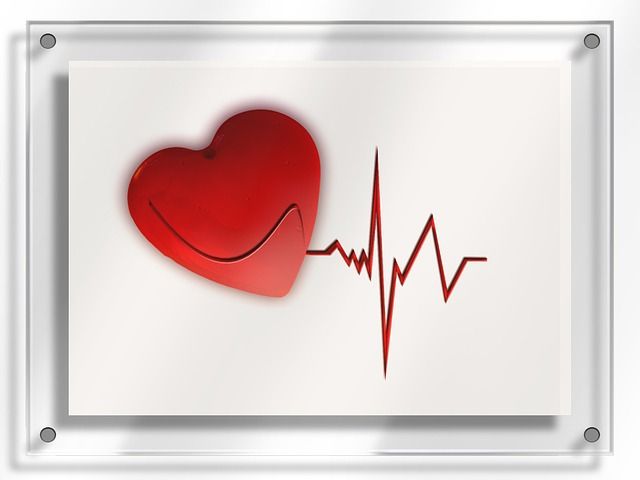The heart rate, pulse or pulsations are the number of beats that the heart normally makes per minute, being what gives life to this organ so that it can function normally and thus pump the blood that the whole body needs.
It is about the life of the heart, since without them it is said that the heart has lost its vital signs, producing what is called death due to cardiovascular disease or a heart attack, hence the importance of having to constantly measure it.

During the beat, the heart performs two important movements which are defined in the beat or the contraction of the organ itself, working as a function of pumping and sending blood to carry oxygen to the entire body and it receives the necessary vitality to survive..
The beats per minute of the heart vary according to the position we have or the activity we are doing, whether it is at rest or fixed, tachycardia or accelerated rhythm and bradycardia or low beats per minute of the heart.
Depending on one and the other, you can have different symptoms that are evident in each one, being dangerous both one and the other, but if you maintain a healthy life, avoid vices and exercise; the heart does not suffer and works on its own. Normal rhythm.
What do you need to measure beats per minute?
- Number of beats per minute.
- Sex.
- Age.
- Health habits.
- Normal blood pressure levels.
- Normal cholesterol levels.
- Normal triglyceride levels.
- Blood tests.
Instructions for measuring beats per minute
The beats per minute of the heart, you already know that they are the number of times that it beats in this certain time, it also has the normal rhythm while at rest or relaxed, it grows when you are making an effort in any activity, in need of giving more oxygen and vitality.
There are many causes that can cause the beats per minute to change unless work is being done; they also increase their speed due to scares, surprises, fear, anxiety, stress, among many other factors that cause them to speed up.
It is an alert that you have for any moment where you need to run away to preserve life, as a signal in the face of any imminent danger and which in turn causes a hormone called adrenaline to be released that allows the body to accelerate.
This hormone is secreted when the feelings that we just mentioned in the previous paragraph appear suddenly and cause the heart to react instantly; making it beat faster than normal.
This is how pulses are measured
- To measure the pulsations manually, just use two fingers, the index and the middle together on the wrist, in its inner part that is, at the end of the thumb, moving the fingers to be able to obtain the pulsations.
- You have to have a clock where you will see the minute pass, for a better reading it is best to use a stopwatch with which it becomes easier and you will not be wrong, put your fingers firmly on the part previously described with force.
- If you feel the blood pass through there, you will feel the pulsations of your heart and you can start counting them for an exact minute, that is, 60 seconds so that you have a better reading, you can also use a wall or kitchen clock to guide you.
- The important thing is to be able to count on the exact minute and that you get the beats on your wrist, with this you have the possibility of an excellent reading, so start looking for it now so that you can read the speed of your heartbeat.
- The pulse rate of an adult person, whether female or male, is between 60 and 100 beats per minute, so if you are this age and you realize this way, your heart is in good condition.
- If you practice sports or are a professional athlete, it is possible that this level of pulsations is much lower, so do not worry, because if you feel some symptoms of discomfort, you just have to go to your specialist immediately.
- Babies who have come into the world have a fairly fast pace, since if you measure their heart rate you will find it in a range of 135 to 150 per minute, so it is said to be quite fast.
- Therefore, from birth to five years, a range of beats per minute enters, from there it changes every 5 years, entering different stages and thus accelerating or decelerating when it comes to moving from one to another.
- You may not have realized that your baby had high or elevated heart rate, but now you realize that it is normal, so don’t worry, from now on you can have everything covered since children change their level as they grow of pulsations.
- For this reason, we present the following ranges of ages and beats per minute so that you have an idea of what you should know in the face of any change you feel in yourself or in your children: Birth to 4 years: 130-150 beats per minute; 5 years to 9: 75 to 115 beats per minute; 10 years and older: 60 to 100 beats per minute is normal.
- As we told you, athletes have a special range of between 40 and 60 pulses, so there is no need to worry about this, although most women when they enter menopause and depending on their metabolism can decrease or accelerate their pulses.
- It is one of the ways to know when they are entering the stage of leaving their reproductive life to enter menopause, in addition to this they also increase their muscle mass index, so they must be careful not to gain too much weight.
- To properly measure the number of beats per minute of your body, you must be aware of being at rest to know if you are really in a normal range or expected level, yes, taking into account if you are a man or a woman and if you are not in the stage of pre menopause.
- With a stopwatch it is very easy to do it that is why current mobile devices have the facility to bring one so that you can keep up with this, and start from the minute to count the beats until it ends.
- It is essential that if you cannot find the heartbeat or you cannot count well, you look for a person who knows how to measure it reliably and thus you will have the possibility of having a normal range, since a wrong reading can give you false diagnoses.
- The state of rest is important, so if you are going to measure your heart rate and you arrive from the street with too much stress and anxiety, you should take into account waiting a few minutes, between 10 and 15 minutes to be able to measure it safely and be seated.
- On the other hand, you should not have smoked or ingested alcohol before doing so, since many times these bad lifestyle habits tend to accelerate your heartbeat and therefore their readings are not reliable, so be careful with this.
- Remember that the fingers to use are the index and the middle, which is the first two of the hand, also the hand you should take is the left one so that you have a faster and easier reading, especially when you are at rest.
- In the neck, the pulse is also usually taken quickly, so you also have this option so that you can obtain it without problems when you feel a symptom that is not in accordance with what is normal in your body.
- Generally you should be in a normal range, and you can do it in two ways, one in 30 seconds and then multiplies by two the beats you have counted in those thirty seconds, so that you have the number of beats for a full minute.
- The other way is to do it directly in 60 seconds that add up to a minute, so that you don’t have to make a big effort, especially if you feel like you have tachycardia or bradycardia, with their annoying symptoms.
- Everything will depend on the reading you have, if it is normal you should stay calm, but if on the contrary that number increases or decreases, that is, less or more than 60-100, you should immediately go to a health center or a doctor.
- The most dangerous is when your heart rate rises too high, that is, more than 100 beats per minute, you may have a heart attack at any time, which is why it is considered the most dangerous, visualize what other symptoms appear.
- You need to keep in mind that many conditions can accelerate your beats per minute, so it is important that you have the possibility to remain calm when you feel that you have tachycardia so that it does not affect you too much.
- The specialist is the one who must indicate if you need an observation in a health center, so he is the one who diagnoses, evaluates and recommends so you should not self-medicate, because that can further reduce your health or have an unfavorable reaction.
- Remember that some medication must be causing your heart rate to rise, so be careful with these and always manifest the adverse reactions you feel to any new treatment for diseases such as high blood pressure or diabetes.
- The normal thing when you feel bad at any time is to lie down, call the doctor and stay at rest so that you can stabilize yourself, the first thing to do in a tachycardia emergency that has not been due to emotion.
- A scare, surprise, nerves, among other feelings can raise your heart rate, so it is important to first know the cause of the elevated heart rate, so before consulting the doctor remember if this has happened to you.
Tips for measuring beats per minute
- Maintain a balanced diet so that you do not have heart rate problems, obesity or any other disease.
- Do exercises that are not extreme which can be harmful to your health or accelerate your heart rate too much.
- Remember that if you have a pacemaker due to bradycardia, you should take life calmly as well as normal.
- Reduce stress to avoid relapses of any kind.
- Do not take treatments without the consent of the specialist.
- Avoid alcohol, tobacco and unhealthy habits so you stay energized and healthy.
- Avoid a sedentary lifestyle by walking, jogging or jogging in the morning or in the afternoon every day.
- Leave the stress and anxiety of the activities to which you dedicate yourself.
- Avoid problems and lead to a peaceful life by taking vacations and rest days to stay healthy.
- Find out more about beats per minute and what they tell us.

















